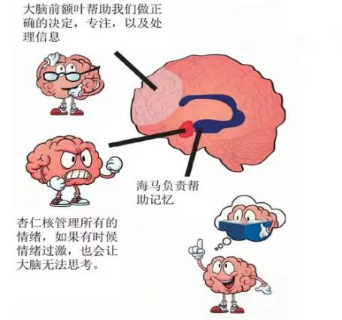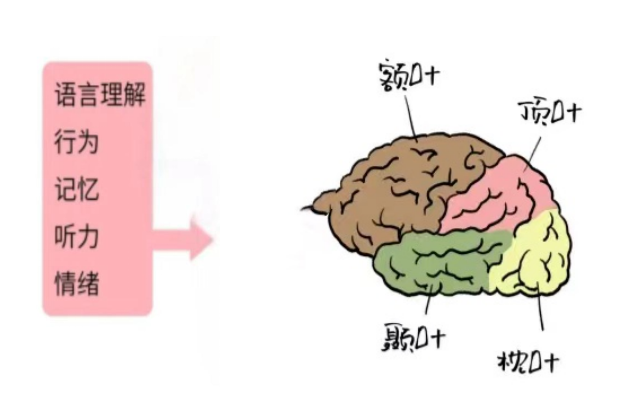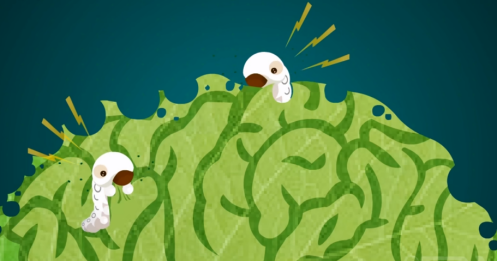[Micro Science Popularization] Understanding Alzheimer's Disease and Finding "the Thief Who Stole the Mind" in Time
Alzheimer's Disease (AD), a degenerative disease of the brain characterized by the onset of dementia. Mainly occurs in old age or early old age, the onset of hidden, symptoms are progressive aggravation, is the main cause of elderly cognitive disease (dementia), commonly known as "senile dementia".
The progression of Alzheimer's disease from an asymptomatic state to mild cognitive impairment (MCI) and eventually to dementia can last decades. It is medically classified as a pre-dementia stage and a dementia stage, the main difference being whether the patient's ability to live has declined.
"Alzheimer's disease" is often manifested as a big change in temperament, memory decline, slurred speech, inexpressiveness, inability to take care of oneself, mobility, and so on.
Why can't you remember your way home? Why has the steady pace become shaky? Why don't you know your family anymore? Who stole our memories?
Brain memory is divided into long-term memory and short-term memory.
The hippocampus, located in the brain's medial temporal lobe, is shaped like the hippocampus and plays a crucial role in memory, such as being responsible for converting short-term memories into long-term memories.
When we first encounter information, it is first processed in the hippocampus to form short-term memory. If some information is mentioned many times in a short period of time, it will be transferred from the hippocampus to the cerebral cortex, and eventually form long-term memories, which are stored in other areas of the brain.

When neurons in the hippocampus die in large numbers, hippocampal function is impaired, resulting in short-term memory loss.

If the brain is likened to a silkworm leaf, Alzheimer's disease is a silkworm baby that never eats enough, they eat here and there, slowly but never slack, never stop. 
They gnaze the areas of the brain that control emotions, and the patient's emotions will be out of control, and sometimes there will be persecution paranoia: family members let him eat, he will say that the food is toxic; Take him for a walk. He said he was kicking him out.
When they gnawed into the areas of the brain that manage long-term memory, the patient's earliest and most precious memories would disappear, and the patient would no longer recognize his or her loved ones.
When they get to the areas of the brain that regulate balance and coordination, the patient stays in bed. In the long run, various complications also come together, such as lung infection, pressure sore, urinary system infection, muscle atrophy, thrombosis and so on.
One of the biggest worries is getting lost. After the elderly are generally lost and fall, injury, death is closely related!
So how to prevent the elderly lost and do a good job of protection measures?
1, the patient must be accompanied by family members when going out, and we can make the patient's name, phone number, home address, contact information and other information into a badge, so that they can carry it with them and prevent problems before they happen.
2, avoid too much relocation, try to let the patient live in a familiar environment.
3, wear the "yellow bracelet", after the elderly lost, the finder can contact the family in time.
Although Alzheimer's disease is irreversible, there is no cure. But human drugs can hold those two baby silkworms to chew a little slower, and a little slower, so that the aging rate of the brain becomes a little slower. Therefore, pay more attention to the elderly, understand the living habits of the elderly, when the elderly forgetfulness, personality changes and other situations, go to the hospital as soon as possible. After formal treatment of senile dementia patients, life in later life will be effectively improved.
References:
[1] Ye Jie, Yu Xiaoli, Wang Yan, Yu Xiaohuan. Effect of familial genetic prevention on reducing the incidence of Alzheimer's disease in elderly patients [J]. Chinese Journal of Gerontology,2019,39(24):6049-6052.
[2] Wang Fenglin, Wang Aimin, Huang Yiming, Xu Yaqi, Zhang Wenjing, Shi Fuyan, Wang Suzhen. Visual analysis of research hotspot and development trend of Alzheimer's disease risk factors from 2002 to 2022 [J]. Journal of Practical Preventive Medicine, 2018,31(1):44-48.
[3] Chen Jing, Wang Yanfeng, Wang Feng. Research progress of blood markers for early diagnosis of AD [J]. Life Science Instruments, 2019,21(04):18-27. (in Chinese)
Prev
【 Micro-Science Popularization 】 Don't Neglect the elderly! The denture was not cleaned thoroughly and ended up blocking the "water pipe" of the parotid gland.
Next
The third teaching video of the project "Prevention and Intervention of Disability after Senile Asthenia": Senile COPD and Asthenia Disability

